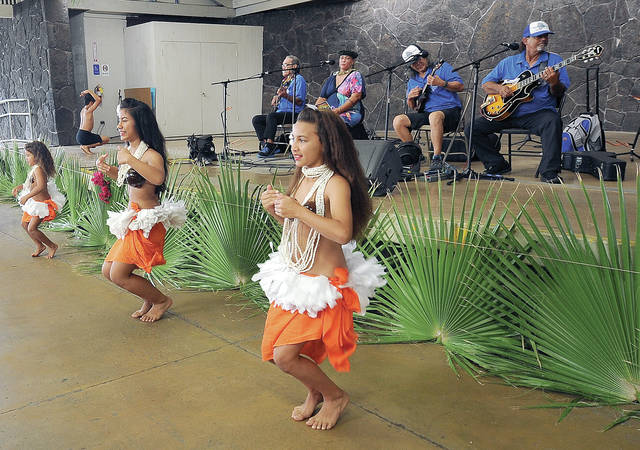KAILUA-KONA — This year’s Avocado Festival is about much more than celebrating one of Hawaii Island’s most beloved fruits.
Sponsored by the nonprofit organization Sanctuary of Mana Kea Gardens and set for 10 a.m. to 5 p.m. on Saturday at Hale Halawai in Kailua Village, much of the 13th annual festival will mirror what it’s evolved into over the last several years.
Agricultural presentations on grafting, pruning and soil management, as well as panel discussions on topics like recycling and an avocado recipe and tasting session with chef Steven Rouelle will all be part of the program through 1 p.m. After that, music featuring Dr. Tim’s Medicine Band, among others, will begin. Between 2,000 and 3,000 people are expected to attend.
But this year stakes are higher as the festival arrives on the heels of the Hawaii avocado industry’s re-entrance into the mainland market.
The sale of Hawaiian avocados to Alaska beginning in 1987 and the contiguous 48 states in 1989 appeared a boon to what might soon become a booming agricultural industry for the islands, particularly Hawaii Island. But the United States Department of Agriculture (USDA) slammed the door of commerce shut when it discovered fruit flies were hitching rides in the avocado to the mainland.
In 2013, the fruit fly concern mitigated by research and the resulting implemented procedures, the U.S. government reopened the sale of Sharwil avocados to 32 states during specific times of the year. If fruit flies are able to slip under the radar, they’ll end up in areas that due to inclement weather will have no crops in season for the flies to infest.
Last December, for the first time in more than 25 years, Hawaii Island Sharwil producers began weekly shipments of roughly 3,000 pounds of avocado to two Seattle-based wholesalers — maxing out the re-burgeoning industry’s packing capacity as only one packing plant, Kane Plantation, is in operation.
Plans for more facilities with considerably larger capacity than Kane are in the works and scheduled to come online as early as this year. But those around the industry note it will take time for significantly increased production and its accompanying export to expand to the mainland, which as of now is accepting only Sharwils.
Randyl Rupar, one of the festival organizers, said farmers on the island have aspirations well beyond a few shipments of Sharwils to the mainland every winter — and this year’s celebration is going to be a part of the pitch.
Ken Love, executive director of the Hawaii Tropical Fruit Growers Association, has invited to the festival around 20 agriculturalists from Japan as well as a few members of what Rupar characterized as that country’s equivalent to the USDA.
“We’re only allowed to sell Sharwil to particular states on the mainland,” Rupar said. “What we’re attempting to do is sell all of our varieties of avocado. Rather than having to jump through the hoops of our Food and Drug (Administration) and Department of Ag, we’re going to possibly see if Japan might be interested.”
He added that Hawaii collectively grows more than 9 million pounds of avocado annually, about 80 percent of it going to waste. On top of that, the state imports around 6 million pounds of the same fruit.
“It’s absolutely ridiculous,” Rupar continued. “So we really want to open up our markets.”
That doesn’t mean Hawaii growers won’t continue to pack and ship Sharwil to the mainland or try to expand sale varieties within national borders. But it does mean the festival will be a showcase of sorts to ship west instead of east, and potentially in considerably greater quantity.
To help accomplish that goal, the Sanctuary of Mana Kea Gardens thought to get creative with its marketing strategy. What the organization came up with is the superhero-themed “Avocadra,” representative of all of Hawaii’s hundreds of varieties of avocado.
An animated rendering of the fictional figure by a former Marvel artist depicts the green-clad Avocadra on the flyer for the festival. Her character will have a hard skin and a heart of gold, Rupar explained.
“We’re trying to figure out exactly what type of superpowers she has,” he said. “We want to get kids involved and co-create something that a young person could (identify with), overcoming being bullied and still have a sense of compassion for other people.”
A 20-year-old woman will portray Hawaii’s agricultural heroine at the festival clad in a $500 costume commissioned from a shop in Hollywood — the future and fate of Hawaii avocados in Japan at least partially in her hands.


